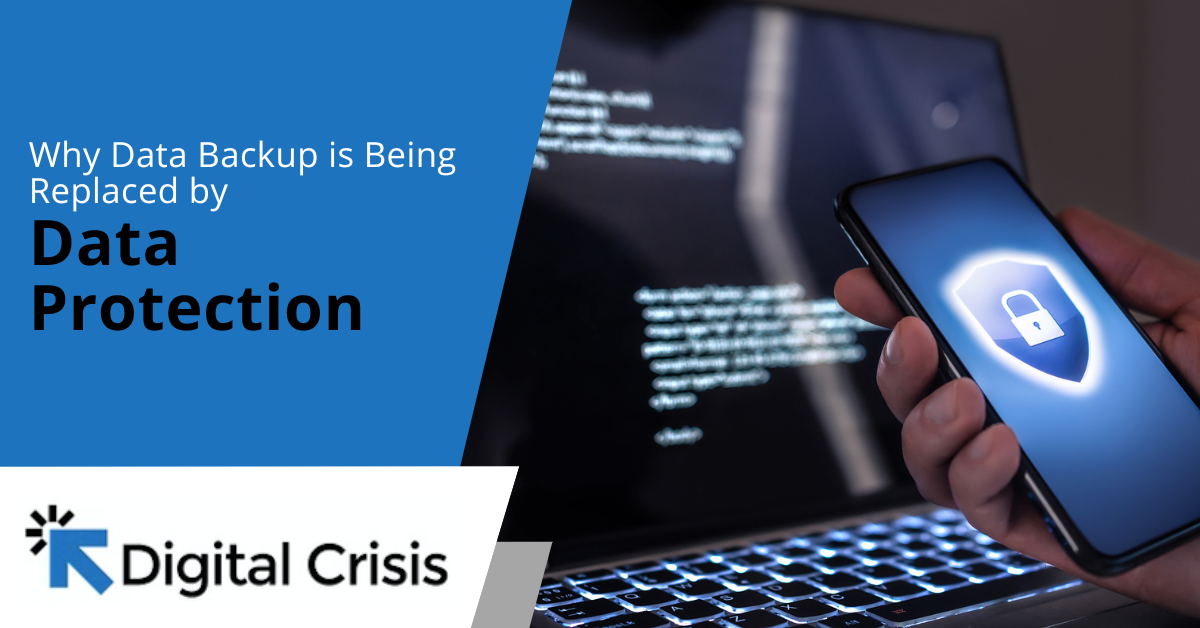
Data backup has long been the standard method for businesses to protect their valuable information. However, with the increasing complexity of technology and the growing need for data accessibility, data backup is no longer enough. As a result, data backup is being replaced with data protection as a more comprehensive solution to safeguarding your data.
Cybersecurity and data breaches are two of the most serious problems a company can face. According to a study, 81% of all data breaches take advantage of privileged data access. As a result, many businesses need to move to a more advanced data protection solution.
Data protection goes beyond simple backup and storage. It provides real-time data protection and recovery, ensuring that businesses can access their information at all times, regardless of any data loss events. This includes protection from both internal and external threats, such as cyber-attacks, human errors, and natural disasters.
The increasing reliance on digital systems in businesses has made data protection necessary. Continue reading to understand why data backup is being replaced by data protection.
The consequences of a data breach can be significant, including loss of revenue, damage to reputation, and legal consequences, making data protection a critical aspect of an organization's overall security strategy.
Data protection is the process of protecting crucial data from corruption, unauthorized access, use, compromise, or loss, as well as providing the ability to restore the data to a functional state if it appears to be rendered inaccessible or unusable.
Data protection aims to minimize the risk of data loss and ensure business continuity, even in the face of cyber-attacks, human errors, and natural disasters. Some common methods of data protection to reduce the cost of a data breach include encryption, access controls, backup and recovery systems, and disaster recovery planning.
Backup and recovery systems ensure that data can be recovered in case of a failure or disaster, and disaster recovery planning involves creating a plan for how to respond to and recover from such events.
Data is a valuable asset in the business world, and protecting it is critical for success. Data backup was the standard method for protecting digital information in the past, but it has now been replaced by data protection as the preferred method. This is because data protection allows businesses to avoid these outcomes and keep their information secure.
With data protection businesses can access their information at all times, regardless of any data loss events, and quickly detect and respond to any data-related issues, reducing the risk of data loss.
Data protection is especially important for businesses because data breaches and unavailability to retrieve data can result in reputation damage and financial losses. When a company fails to protect sensitive information and allows data breaches to occur, its reputation suffers. Below are some important reasons data protection replaced data backup:
One of the reasons data protection replaced data backup is that it protects valuable information, which is an important asset to your company.
A potential cyber breach could be disastrous for businesses that have a website. If unauthorized people gain access to your data, your website may be forced to close, or you may experience downtime. This may impact your revenue because you will lose money due to failed transactions.
Hackers may find it difficult to access sensitive information if data is protected. Names, addresses, phone numbers, email accounts, bank details, health information, and other sensitive information may be included. With data protection, you can deter criminals from engaging in identity theft, phishing scams, and other fraudulent activities.
Data protection provides real-time protection and recovery of data, ensuring that businesses can access their information at all times, regardless of any data loss events. Backup, on the other hand, only protects data that has been previously stored.
Data protection offers real-time monitoring and alerts, allowing businesses to detect and respond to any data-related issues quickly, reducing the risk of data loss.
Data protection protects against inside and outside threats, such as cyber-attacks, human errors, and more. Backup only protects against external threats such as hardware failures.
Data protection is often more cost-effective in the long run, reducing the risk of data loss and improving business continuity. Backup can be expensive to implement and maintain, especially as data volumes grow.
Data is one of the company's most valuable assets. If you're still thinking about backups, consider data protection and make it a top priority.Digital Crisis provides customized managed IT support with the tools you need to make your business safer. Contact us today.